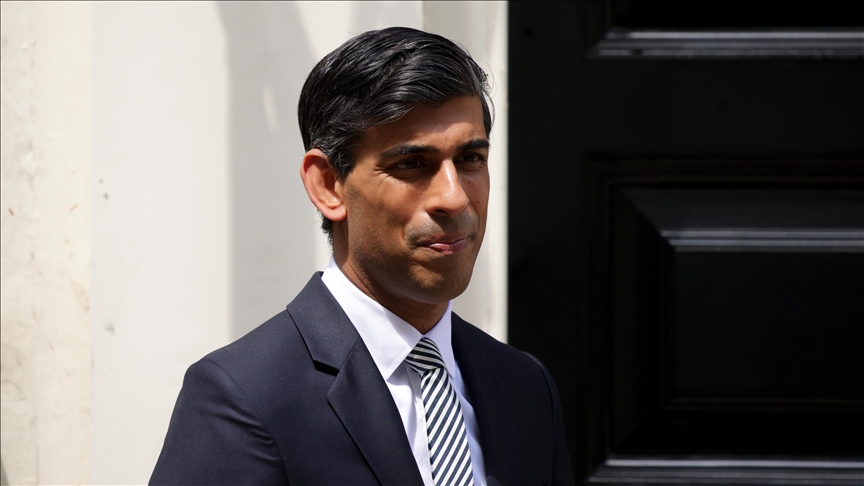UK leadership hopeful Rishi Sunak criticized over anti-terror propositions
Sunak’s proposals risk ‘straying into thought crimes,’ says former police chief
 Rishi Sunak, one of the main contenders to become the British prime minister and the Conservative Party leader
Rishi Sunak, one of the main contenders to become the British prime minister and the Conservative Party leader
LONDON
Rishi Sunak, one of the main contenders to become the British prime minister and the Conservative Party leader, has been criticized over his proposals to strengthen the government’s anti-terror strategy.
Sunak’s plans, which include expanding the definition of extremism and vilifying individuals who are critical of the UK foreign policy, has been described by a former senior police chief as damaging to the country’s national security as well as its democratic and liberal credentials.
“The widening of Prevent could damage its credibility and reputation. It makes it more about people’s thoughts and opinions. It is straying into thought crimes and political opinions,” Peter Fahy, Britain’s former police chief, said in a statement.
“Political opposition is not where police should be, it is those who pose a serious threat and risk of violence, not those opposed to political systems,” Fahy added.
During a Tuesday night hustings event, Sunak vowed to refocus Prevent, the government’s anti-terrorism strategy, to tackle radical Muslim extremism, describing the latter as the UK’s most significant terror threat.
The leadership hopeful also promised to broaden this definition to include the vilification of the UK, arguing that “those with an extreme hatred of our country that leads them to pose a risk to national security can be identified and diverted away from a destructive path.”
The government’s Prevent program is highly controversial and has come under repeated criticism by rights groups over suppression of free speech and thought, often imprisoning innocent people on false accusations of extremism.
It relies on information given to authorities by the public sector. Teachers, doctors and work place managers have a duty under the program to report any instances of radicalism to the authorities.
Fahy argued that the danger in this strategy as well as in the new proposals put forward by Sunak are the perceptions it creates of the public sector as a government tool to spy on the public and who would define extremism and vilification.
“The danger is the perception it creates that teachers and health workers are involved in state surveillance,” Fahy said.
“What does vilification mean? Vilification would have to be carefully defined,” he added.
Other security proposals from Sunak include classifying extremists in a separate category from the general prison population through a new bill of rights, and monitoring and auditing charities to prevent extremist groups from receiving funds.
Anadolu Agency website contains only a portion of the news stories offered to subscribers in the AA News Broadcasting System (HAS), and in summarized form. Please contact us for subscription options.







